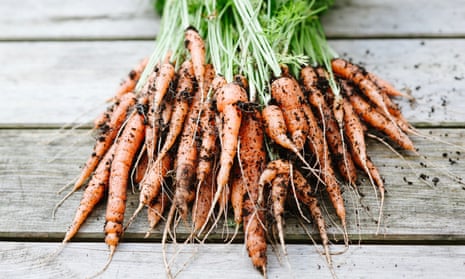Supermarket sales of organic food and drink in the UK have risen by 4% this year, new figures reveal, marking seven consecutive years of growth.
Despite an exceptionally cold winter and a hot, dry summer which have played havoc with crops, organic fresh produce and dairy sales remain the main drivers fuelling growth of the overall market, now worth a record £2.2bn.
Supermarket shoppers spent £1.5bn on organic food and drink, including baby products, in the 52 weeks to the end of June, according to new independent data.
That represents sales through “British retail outlets” – predominantly the big supermarkets but with a small percentage from chains such as Nisa and Costcutter. It does not include independent organic retailers or vegetable box schemes. The figures provide a half-year ‘progress report’ before publication of the sector’s detailed Organic Market Report and full breakdown in February.
Sales of fresh organic fruit and vegetables sales grew by 5.3% in the year to the end of June, while dairy – the largest overall market sector for organic – saw a sales increase of 3.5%.
Other areas seeing strong growth are organic delicatessen items – including many chilled vegetarian and plant-based products – up 27.8% year on year, while sales of organic beer, wine and spirits were up by 8.7%.
The data – supplied by Nielsen Scantrack – has been revealed by the Soil Association, the trade body which licenses organic products and promotes organic farming, on the eve of its annual “Organic September” campaign.
“We know that interest in organic food has been growing in recent years and it’s great to see that farmers continue to be rewarded for growing food as it should be, with no artificial additivies, fewer pesticides, no GM and with the highest standards of animal welfare” said Liz Bowles, Soil Association’s head of farming. “Sales in 2018 are continuing to grow although all UK agricultural businesses are suffering from the unprecedented drought and heat which has affected large parts of the globe.”
Soil Association Certification, which certifies over 70% of all organic products sold in the UK, said it had approved more than 3,000 new products and producers in the last year alone, including seaweed gin, kefir and even hot cross buns.
Traditionally a sector associated with smaller, artisan producers, big brands have been entering the market, notably Red Bull’s new Organics soft drinks range, Babybel’s organic cheese, and Coca-Cola’s Honest Kids Organic Juice.
Sales of organic food and drink have bounced back after plummeting following the recession. But the market is still dwarfed by the size of the overall food and drink sector – the largest manufacturing segment in the UK and now worth £28.8bn according to the the Food and Drink Federation.
